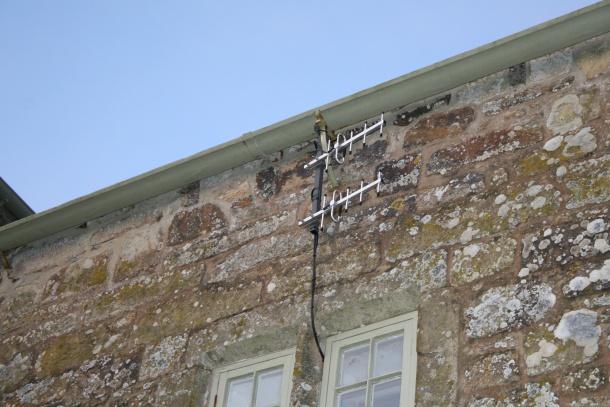Primed for 4G: Everything Everywhere ends 3G work

Everything Everywhere has wrapped up its work on 3G sharing across the Orange and T-Mobile networks, as it gets ready to hear whether it can launch faster 4G services.

Everything Everywhere has been conducting trials of 800MHz-based 4G in Newquay. Image credit: Ben Woods
On Tuesday, the mobile operator said it has finished integrating 3G data services for its two networks. Milestones in the two-year project include switching on cross-network voice calls and 2G data services in October 2010 and the introduction of 'seamless' 3G sharing a year after that.
The network sharing meant that 27 million Orange and T-Mobile customers can now instantly use either network. In addition, they got better 2G and 3G reception, along with an increase in geographic coverage, according to Everything Everywhere.
"We saw with 2G national roaming there was an uplift [in geographic range of reception] of around 10 percent," Tom Bennet, former head of network services and devices at the company, said at an event in London.
"When it comes to 3G on the Orange side, that's more like a 21 percent increase. It was about 7 percent for T-Mobile customers."
The announcement comes as Everything Everywhere presses to be allowed to refarm its 1800MHz 2G spectrum to provide higher-speed 4G services, which could give it a year's head-start over rivals.
It is undertaking a £1.5bn program to refresh its core 2G network hardware to do this, and it has said it is poised to begin offering 4G services before the end of 2012, but it needs Ofcom's permission for the refarming before it can launch.
Ofcom, which recently conducted a consultation on Everything Everywhere's refarming, told ZDNet UK on Tuesday that it will publish the responses it received shortly. A final decision will follow soon after, it said.
Boost from 4G
At the London event, Everything Everywhere said its introduction of 4G would open the door to delivering services, such as HD video streaming, that are not viable with 3G download speeds.
"2G was the nineties [and] 3G was the noughties technology," said David Salem, head of network strategy and end-to-end design at the company. "Will 3G be good enough to
maintain consistent HD video streaming? Possibly not."
"It has developed a long way, but to look forward and cope
with growth and quality and volumes [of data use] that people are
looking for, you have to start introducing 4G and 4G services into the
network," he said.
A 4G network would also pave the way to growth in mobile cloud services, gaming, and faster web browsing and music downloads, according to Salem. Everything Everywhere has already conducted 4G trials in rural and city locations, achieving average speeds between 6Mbps and 38Mbps, depending on the distance from the cell tower site.
If it does get the green light from Ofcom, the operator has said it will start rolling out 4G services on a region-by-region basis. However, it said it is too early to give an indication of what 4G data will cost its customers.
Salem conceded that while 4G could help alleviate the lack of high-speed broadband in rural locations, it could not overcome the problem alone.
"You can't be entirely reliant on mobile to sole the rural broadband problem. Mobile has its place and can solve a lot of those hard-to-reach areas, but [there is] a capacity constraint that says how far you can go. It's a balance between how far the fibre goes and how far the mobile goes," he said.
Get the latest technology news and analysis, blogs and reviews delivered directly to your inbox with ZDNet UK's newsletters.